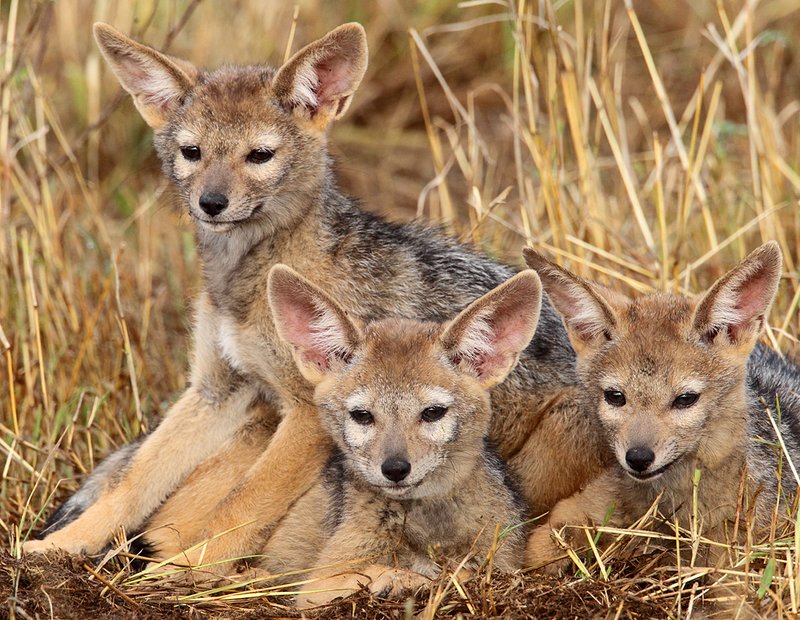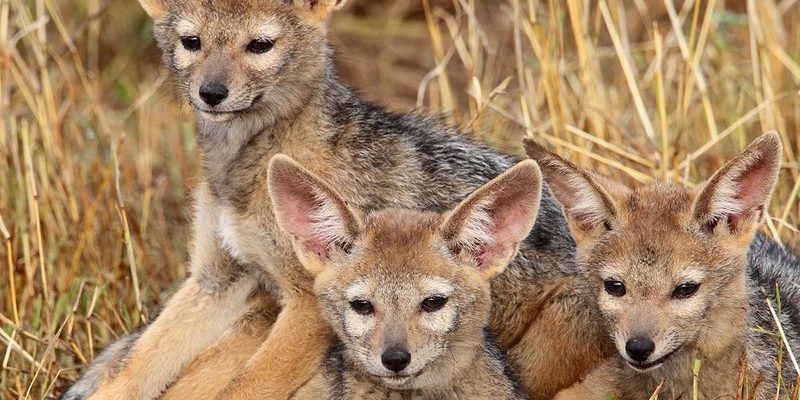
Black-backed jackals are resourceful and intelligent, which plays a big role in how they raise their young. They’re often found in the savannas and grasslands of Africa, where they adapt to their surroundings. Their parenting style is both tender and tough, reflecting the realities of life in the wild. So, let’s dive into the world of these remarkable creatures and explore how they support their growing families.
Understanding Black-Backed Jackals
Before we get into the nitty-gritty of their parenting, let’s take a moment to understand these intriguing animals. Black-backed jackals are medium-sized canids, typically weighing between 15 to 30 pounds. They have a distinctive appearance with a black saddle across their back, which helps them blend in with the grasses of their habitat. This camouflage is essential, especially when they’re raising young, as it keeps them safe from larger predators.
Their social structure is also interesting. They often form monogamous pairs that mate for life. This bond is vital, especially during the parenting phase, as both parents are involved in caring for their young. You might be wondering—do they raise their pups alone? Not at all! They often have the help of older siblings or other pack members, making it a community effort. This cooperative dynamic allows them to tackle the challenges of feeding and protecting the little ones better.
Denning Habits: Safe Havens for Pups
Finding a suitable place to raise their pups is crucial for black-backed jackals. They usually dig their dens in sandy soil, sometimes repurposing old burrows from other animals. This choice of location is strategic—it provides a secure environment for the mother to give birth and raise her young. The den is usually placed near water sources and abundant food, which helps the family thrive.
Once the pups are born, they live in the den for the first few weeks of their lives. During this time, the mother is incredibly protective, rarely leaving the den and relying on the father to bring food. She nurses the pups until they’re about four weeks old, at which point they start to explore their surroundings. Here’s where it gets interesting: the jackal parents will often keep the den clean by consuming waste. This behavior not only keeps the area tidy but also minimizes scents that could attract predators.
The Importance of Nutrition
Feeding the young is one of the primary responsibilities of the black-backed jackals. Once the pups are around four weeks old, they begin to eat solid food. The parents hunt actively during this time, bringing back a variety of prey, including small mammals, birds, and insects. They often regurgitate food for the pups, making dining a family affair.
Nutrition is vital for the pups’ development; it helps them grow strong and healthy, which is essential for survival. The parents make sure to provide a steady supply of food, often hunting in pairs to maximize their success. You might wonder, how do they manage this with so many mouths to feed? Well, they’re skilled hunters and have excellent teamwork.
Teaching Survival Skills
As the pups grow older, learning becomes a vital part of their development. Within a few months, they begin to accompany their parents on hunts, even if it’s just a short distance from the den. This training period is not just about learning how to catch food; it’s also about understanding their territory and the dangers it holds.
The parents take them on little excursions, showing them how to stalk and ambush prey. They often demonstrate different techniques, like using the cover of tall grass or the element of surprise. This stage is crucial, as jackal pups must learn these skills quickly to survive in the wild. You might imagine it’s a bit like teaching a child to ride a bike—there’s a lot of guidance, encouragement, and sometimes a few tumbles along the way.
Social Structure: A Community Effort
Black-backed jackals live in familial groups, which play a significant role in raising the young. Older siblings often help care for the pups, learning responsibility and social skills in the process. This communal approach not only helps the parents but also strengthens the bond between family members.
Additionally, cooperating with other jackals or even neighboring packs can enhance their survival. For example, sharing food resources or alerting each other to potential dangers makes the whole community more resilient. It’s a bit like teamwork in a sports game—everyone has a role to play, and together, they’re stronger.
Challenges of Raising Pups in the Wild
While black-backed jackals have many advantages when it comes to parenting, they also face significant challenges. Predators like lions, hyenas, and even larger birds of prey pose threats to their young. This danger requires constant vigilance from the parents. When hunting, for instance, one parent might stay near the den to keep watch, while the other hunts for food.
Food scarcity can also be a problem, especially during dry seasons when prey is less abundant. The parents must be resourceful, sometimes traveling long distances to find food. This search can be exhausting, and it places additional stress on the entire family unit. However, their adaptability and intelligence help them navigate these tough times.
The way black-backed jackals raise their young showcases the beauty and complexity of life in the wild. From their dedicated denning habits to the collaborative nature of their family structures, they exemplify how cooperation and skill can lead to successful parenting. These jackals not only provide for their pups physically but also teach them vital survival skills that will prepare them for adult life in the wild.
So, next time you think about animal parenting, consider the black-backed jackal and the lessons they embody: community, resourcefulness, and resilience. It’s a wild world out there, and these clever canines have honed a parenting approach that thrives amidst the challenges of their environment.

